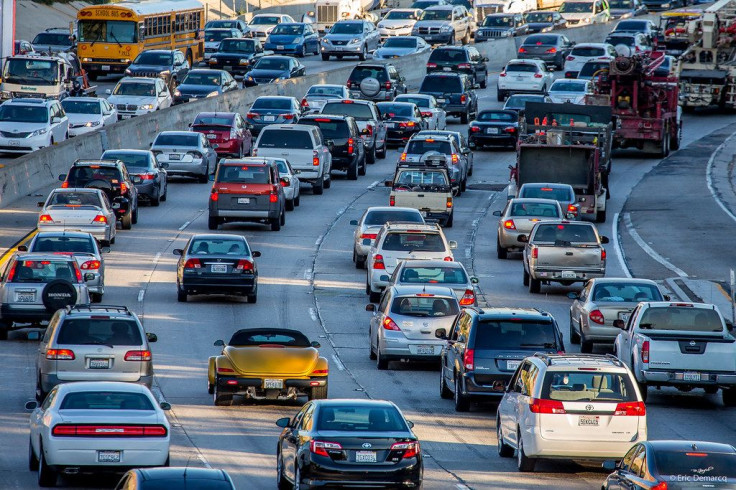Which Auto Insurance Companies Are Offering Coronavirus Rebates? We List A Dozen

KEY POINTS
- The most money being returned is from Geico, $2.5 billion
- Farmers' premium rebate is the largest, 25%
- Allstate says Americans have driven less than half the usual number of miles since March 8
A dozen of the nation’s largest auto insurance companies announced this week they will refund more than $7 billion to policyholders as a result of the reduction in driving due to coronavirus stay-at-home orders. Insurers say fewer vehicles on the road mean fewer accidents and fewer claims. Most also said they would work with customers who cannot afford to pay their premiums right now.
Allstate said the number of miles driven since March 8 is less than half what normally would be driven.
Geico said it would return $2.5 billion to auto and motorcycle customers, about 15%, and apply the rebates to policy renewals April 8 through Oct. 7. The credit also will apply to new policies purchased during the time period.
“The average auto policy has a semiannual premium of about $1,000 and generally covers more than one vehicle. This means we expect credits to average about $150 per auto policy and $30 per motorcycle policy,” Geico said.
State Farm said it would provide policyholders 25% rebates for March 20 through May 31, totaling $2 billion. The rebates will vary by state and will be applied to bills, beginning in June.
“This is the single largest dividend paid to customers in our company’s history,” State Farm said.
Progressive said it would return $1 billion or 20% of premiums to policyholders for April and May, and may offer further credits in the future. The rebate is to be automatically applied to accounts.
“During this unprecedented time, we know you may be experiencing stress and financial hardship. While you’re doing your part to fight the pandemic, we’re committed to being there in your time of need,” Progressive said.
Allstate is offering 15% credits, about $600 million, for the two-month period. The credit will be applied to bank accounts, credit cards or to a policyholder’s Allstate account. The company also is extending coverage automatically for “customers who use their personal vehicles to deliver food, medicine and other goods for a commercial purpose during the COVID-19 emergency period. Standard personal auto policies typically exclude such coverage.”
USAA said it would return $520 million to policyholders or 20% of premiums – on top of the company’s annual dividends.
“Returning premiums provides timely help for our members,” USAA President and CEO Wayne Peacock said.
Safeco said it would return $250 million to customers, 15% of premiums, in coming weeks.
Liberty Mutual said it would return $250 million or 15% of premiums. The money would be returned to bank accounts, credit cards or by check, depending on how a policyholder made the last premium payment.
American Family said it would provide policyholders with a one-time $50 payment for each vehicle insured with the company, totaling $200 million.
“Because with fewer cars on the road these days, there are less miles being driven and that means there will be fewer accidents. We want to return the savings to you,” the company said.
The Hartford is reducing premiums for April and May by 15%, totaling $50 million.
Nationwide said it would cap 15% rebates at $50 per policy for auto policies active as of March 31, a total of $50 million.
“We are a mutual company, so our focus is on our members, not shareholders. We balance doing what’s right for our members while maintaining our position of financial strength to ensure we deliver on our promises to our members,” Nationwide said.
Farmers said it would reduce premiums by 25% and suspend cancellations due to nonpayment, carrying unpaid balances over to June without late fees or other penalty. 21st Century Insurance, which is owned by Farmers, is following suit.
Travelers said it would credit 15% of April and May premiums, as well as suspend cancellations and nonrenewal of coverage through May 15.
© Copyright IBTimes 2024. All rights reserved.






















